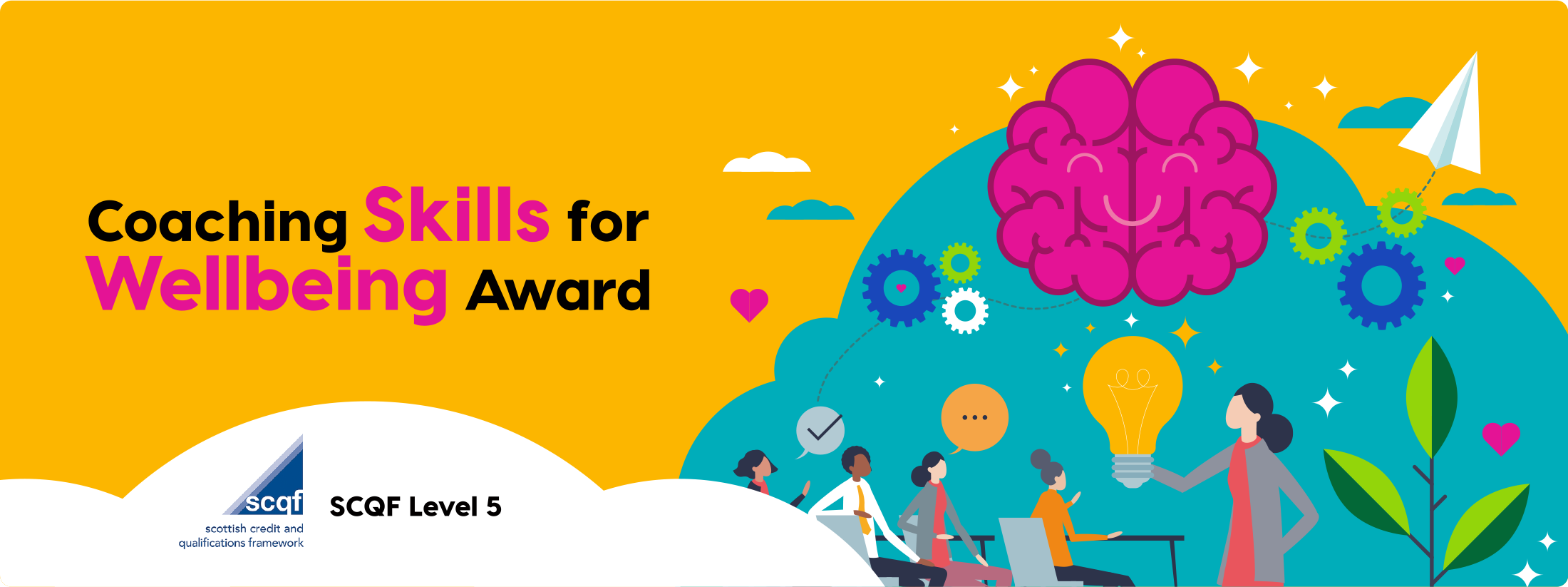Coaching Skills for Wellbeing Award
SCQF LEVEL 5 | 8 CREDIT POINTS | 40 CCE POINTS
The Coaching Skills for Wellbeing Award is a uniquely designed, school-focused programme that equips students with powerful coaching skills and wellbeing techniques. This accredited award is tailored for the educational environment, ensuring that young people not only enhance their personal mental health but also gain the tools needed to support their peers in a leadership capacity.
Skill-Building:
Students learn a range of evidence-based coaching techniques which include:
- Using powerful questions and reflective conversations to overcome challenges.
- Identifying personal strengths and leveraging them to achieve personal goals.
- Learning strategies that build resilience, boost self-efficacy, and promote emotional intelligence.
Wellbeing Interventions:
Beyond coaching techniques, the award includes well-researched wellbeing interventions that empower students to:
- Recognise and manage stress.
- Develop healthy coping mechanisms for everyday challenges.
- Cultivate a mindset that sees obstacles as opportunities for growth.
Peer Leadership & Community Impact:
Students are not only learning for themselves; they are trained to apply their new skills in group settings.
As peer coaches, they:
- Create a supportive network for fellow students.
- Play an active role in enhancing the overall wellbeing of the school community.
- Serve as role models for younger pupils by promoting positive mental health practices.
Impact on Schools and Young People:
Enhanced Emotional Intelligence:
With a focus on developing reflective listening and empathy, the programme nurtures a more emotionally aware student body.
Leadership Development:
As students step into peer coaching roles, they build practical leadership skills that are essential for navigating a rapidly changing world.
Increased Engagement:
The interactive and group-based structure of the coaching sessions fosters an inclusive, collaborative environment where every voice is valued.
Positive Return on Investment:
Evidence from broader coaching initiatives indicates significant benefits, such as improved academic performance, resilience, and overall student satisfaction. Many studies, including data referenced by the ICF, suggest that 85% of organisations see substantial returns on their investment in coaching practices.
Why young people need Coaching:
- 1 in 6 young people are reporting symptoms of mental distress since the pandemic.
- Half of all mental health problems are established by the time someone is 14.
- 75% of all mental health problems are established by the time someone is 18.
- Young Minds is calling for action from the Government to provide more early mental health support for young people.
To find out more about this course please download our Coaching Skills for Wellbeing Award brochure via the link provided below. This qualification has been accredited by the International Coaching Federation and credit rated by the SQA.













